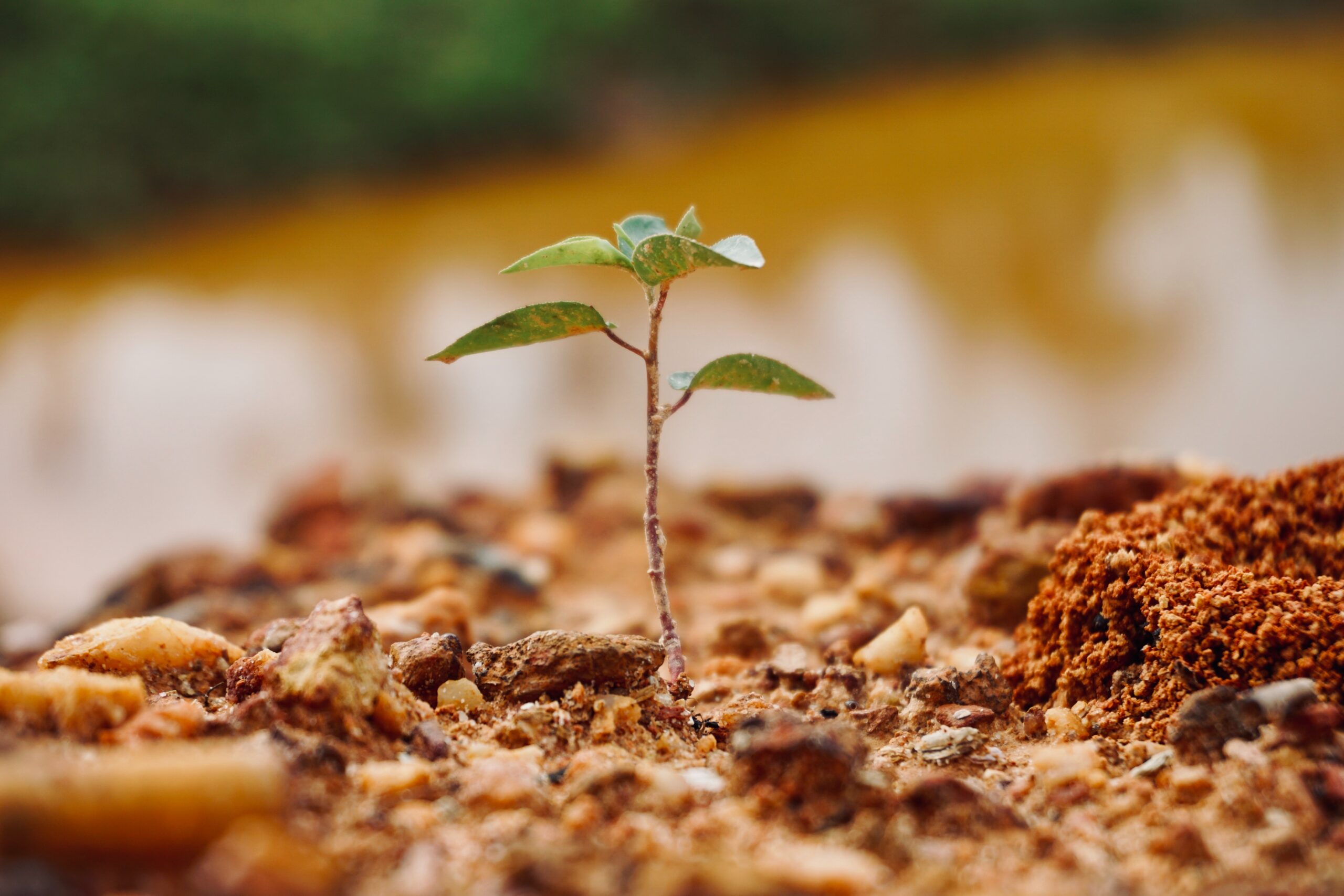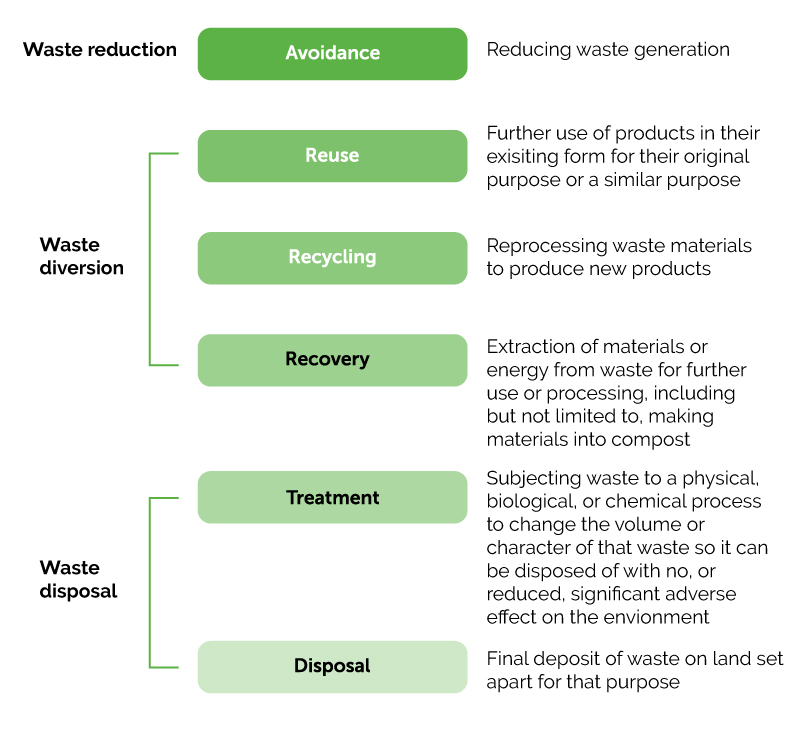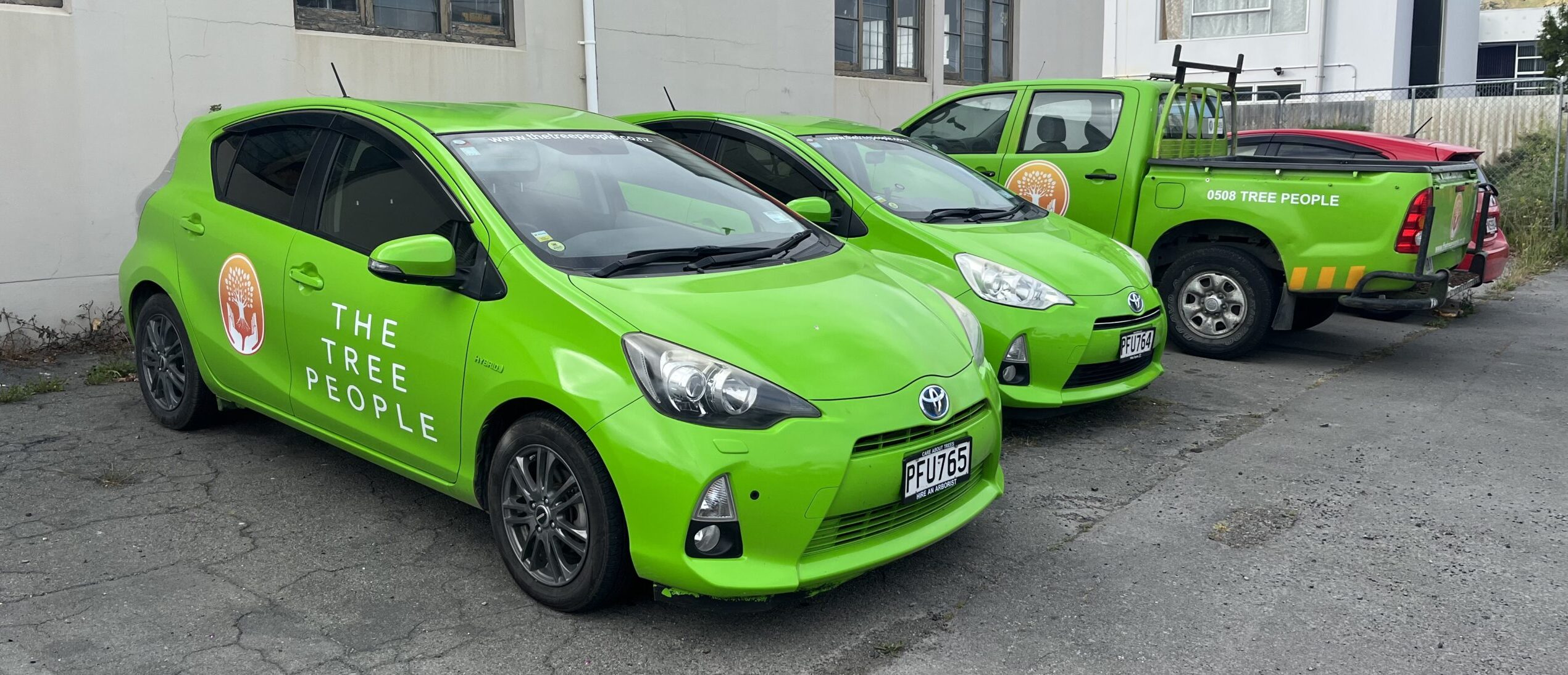The Tree People’s constitution is based on community, business, and environmental sustainability. We unequivocally conduct business in ways that are beneficial for the trees, the people, and the planet. This distinguishes and differentiates us from similar companies and guides all our actions.

The Tree People’s commitment to sustainability is inspired by the United Nations Sustainable Development Goals. These goals help drive our commitment to directly support local businesses, environmental initiatives, and also provide a sustainable future through protecting the health, safety, and well-being of our employees, and our communities.
Energy Management Plan
UN Sustainable Development Goal: #7 – Affordable and clean energy
Mission
The Tree People are committed to reducing our carbon footprint and energy use by implementing procedures and measures to reduce energy waste and increase efficiency.
| Goals: | Actions: |
| 10% reduction of total electricity consumption |
|
| 10% increase in the total use of renewable energy |
|
| 50% of fuels and oils purchased are from renewable sources |
|
Greenhouse Gas Emission Reduction
UN Sustainable Development Goal: #7 – Affordable and clean energy
Mission
The Tree People are committed to reducing our energy related consumption and limiting the production of greenhouse gas emissions, striving to achieve net-zero emissions of greenhouse gases by 2028.
| Goals: | Actions: |
| 80% of small plant will be battery operated |
|
| 50% of small fleet will be battery or hybrid vehicles |
|
| Begin large scale Biochar production to offset our carbon emissions |
|
| Tree planting |
|
| Reduce electricity consumption |
|
| Increase the use of renewable energy |
|
| 50% of fuels and oils purchased are from renewable sources |
|
Sustainable initiatives: Offsetting greenhouse gas emissions
The Tree People can offset our carbon footprint utilising a byproduct of our work, Biochar.
Biochar can sequester carbon in several ways:
- Slow carbon degradation: Biochar is a highly stable form of carbon that is resistant to degradation. When added to soil, Biochar can remain in the soil for hundreds or even thousands of years, effectively removing carbon from the atmosphere.
- Increased soil organic matter: When Biochar is added to soil, it increases the soil’s organic matter content. Organic matter is composed of carbon, among other elements, and is a natural way to sequester carbon in soil. As the soil’s organic matter content increases, so does its ability to store carbon.
- Reduced carbon loss: Biochar can reduce carbon loss from soil through processes such as erosion and leaching. By stabilising soil structure and improving water retention, Biochar can help to keep carbon in the soil.
- Enhanced plant growth: Biochar can enhance plant growth by improving soil fertility, water retention, and nutrient availability. When plants grow, they absorb carbon dioxide from the atmosphere through photosynthesis and store the carbon in their tissues. By promoting plant growth, Biochar can increase the amount of carbon stored in the soil.
The Tree People’s 5 year goal to having a 100% electric/hydrogen fleet.
As a company committed to sustainability and environmental responsibility, The Tree People believes that we can make a significant contribution to reducing carbon emissions by switching our fleet vehicles from petrol to electric.
By switching to electric vehicles, we can significantly reduce our carbon footprint, improve air quality, and reduce noise pollution in the areas where we operate. This change aligns with everything we believe in as a company.
In addition to the environmental benefits, switching to electric vehicles can provide economic benefits for our company and the local community. Electric vehicles are more energy-efficient, resulting in lower overall energy consumption and costs. Furthermore, as a company that cares about the well-being of our employees, customers, and the community, we believe that reducing noise and air pollution can have a positive impact on the quality of life in the areas where we operate.
The Tree People utilise plant-based, biodegradable waste oil and our circular economy
Using repurposed waste oil in chainsaws is an environmentally responsible practice that can benefit both the equipment and the natural environment. The canola oil we use is a renewable and biodegradable resource, meaning that it has a lower impact on the environment compared to petroleum-based oils. By utilising canola oil, the carbon footprint of the company can be reduced, demonstrating a commitment to sustainable practices and supporting the principles of environmental protection.
Apart from the environmental benefits, canola oil is a highly effective lubricant for chainsaws. Its superior lubricating properties can prolong the lifespan of equipment and reduce maintenance costs. Additionally, using canola oil produces less smoke and emissions, improving the air quality and creating a healthier working environment for the team. Therefore, incorporating the use of canola oil in chainsaws can align with our sustainability goals and demonstrate a proactive approach to environmental management.
Solid Waste Reduction
UN Sustainable Development Goal: #12 – Responsible production and consumption
Mission
Minimise our environmental harm through reducing our emissions or discharges to land, air or water
Adopt, where possible, a circular economy where products we use can be reused, recycled or repurposed
Demonstrate leadership, educate ourselves and act upon best practices that help us to minimise and manage waste with better understanding
THE WASTE HIERARCHY

| Goals: | Actions: |
| Paper Efficiency
Reduce paper use by 70% |
We have and are transitioning to:
|
| Waste Diversion
Reduce waste going to landfill by 80% |
|
| Waste Diversion
Reduce waste at source by 80% |
|
| Energy Reduction
Reduce carbon emissions by 25% |
|
| Environmental
Increase reuse of green waste by 15% |
|
Water Management and Reduction Plan
UN Sustainable Development Goals: #6 – Clean waste and sanitation
Mission
The Tree People believe in being effective environmental stewards by continuing to pursue our water conservation efforts.
| Goals: | Actions: |
| Water Efficiency
Reduce total freshwater consumption by 10% |
|

